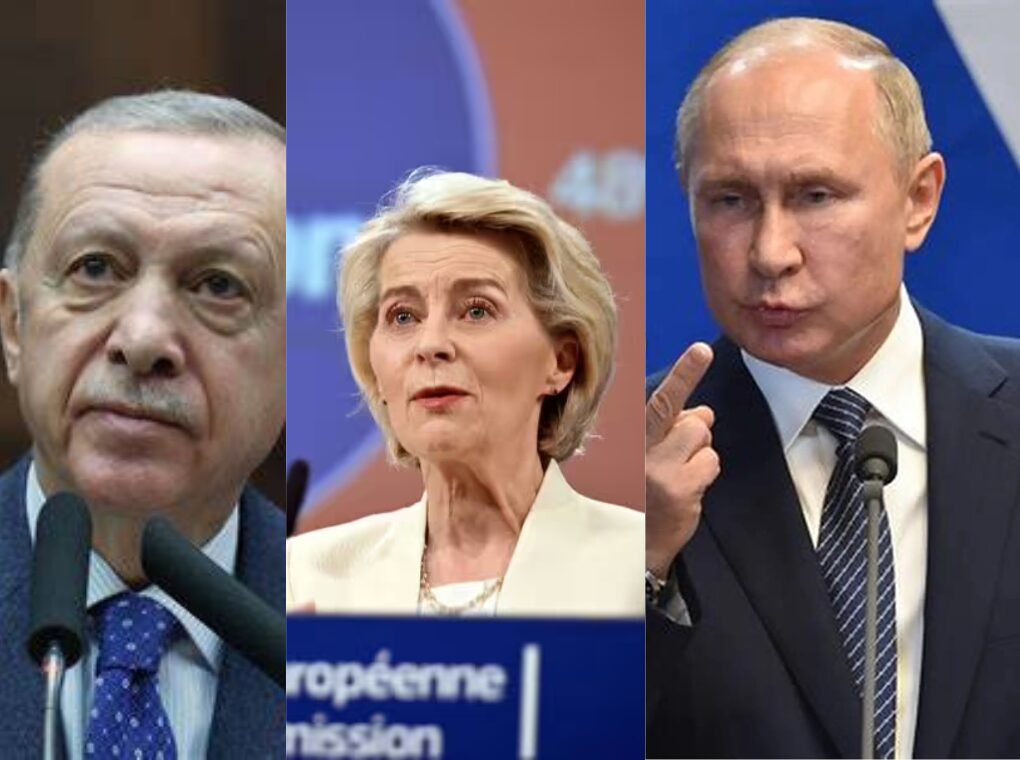Turkey has issued a stern caution to European leaders over reported plans to deploy a large-scale peacekeeping force in Ukraine, reminding NATO allies of Russian President Vladimir Putin’s repeated warnings that foreign troops in the conflict zone would mark a direct escalation of the war.
Turkey Pushes Back on EU Peacekeeping Proposal
Reports circulating in European media suggest that EU policymakers are considering the deployment of up to 50,000 troops to Ukraine if a ceasefire agreement is reached in the coming months. Advocates of the plan argue that such a mission would be necessary to monitor compliance, stabilize contested territories, and create conditions for political dialogue.
However, Turkey, a NATO member but not an EU state, has urged caution. Turkish officials stated that any peacekeeping force made up of NATO or EU countries would inevitably be viewed in Moscow as an openly hostile intervention. Instead, Ankara insists that only “neutral, non-aligned” states should be part of any mission to avoid further escalation.
“Peace cannot be built on provocations,” one senior Turkish diplomat told reporters in Ankara. “Deploying NATO-linked forces in Ukraine would not bring stability but confrontation.”
Putin’s Warning: A Red Line for Russia
The caution from Turkey echoes longstanding warnings from the Kremlin. Russian President Vladimir Putin has repeatedly signaled that the presence of NATO or EU troops in Ukraine would cross a strategic red line, potentially leading to a wider conflict.
In recent speeches, Putin has described such deployments as tantamount to a declaration of war, framing them as direct Western involvement in Ukraine’s defense. This framing, analysts say, is intended both to deter Western escalation and to rally domestic support within Russia.
Europe’s Dilemma: Security vs. Escalation
The idea of an EU-led peacekeeping mission stems from fears that any eventual ceasefire could collapse without external guarantees. Proponents argue that Europe must take responsibility for security on its own continent, rather than relying entirely on U.S. support.
But critics, including many in Turkey, warn that sending EU troops would be interpreted by Moscow not as peacekeeping, but as occupation under another name. Experts suggest that if Europe follows through, Russia could retaliate by expanding military operations or suspending any peace talks.
“This would transform a frozen conflict into a permanent frontline between NATO and Russia,” said a security analyst in Istanbul.
Turkey’s Mediation Role
Turkey has long positioned itself as a mediator in the Ukraine conflict, balancing its NATO obligations with its ties to Moscow. Ankara brokered the now-collapsed grain corridor deal in 2022, enabling Ukrainian exports despite the war, and has hosted multiple rounds of indirect negotiations.
Turkish officials argue that only balanced mediation—involving both neutral states and international institutions—can deliver lasting peace. By warning against EU troop deployments, Ankara is also protecting its diplomatic role as one of the few actors still trusted by both Kyiv and Moscow.
The Bigger Picture
The debate over EU troop deployments underscores the growing rift within the Western alliance over how to manage the Ukraine war’s next phase. While Washington and Brussels remain committed to supporting Kyiv militarily, Turkey insists that diplomacy, not troop movements, is the only way forward.
As the war grinds into its third year, Ankara’s message to Europe is blunt:
Stay away from direct military involvement—or risk turning Ukraine into the spark for a broader NATO-Russia confrontation.
